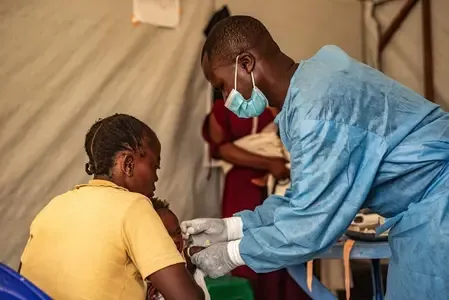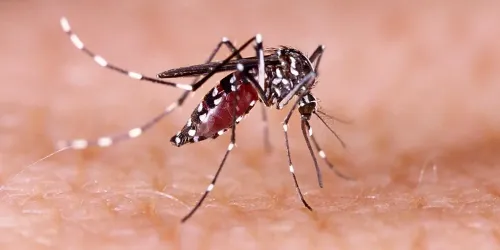Dengue Fever Claims Three Lives in Fiji

Synopsis
Key Takeaways
- 3,671 dengue cases reported in Fiji between January and March 9.
- Three confirmed deaths due to dengue fever.
- Over 950 hospital admissions related to dengue this year.
- Outbreak primarily concentrated in the Western Division.
- Public advised to take preventive measures and seek medical help early.
Suva, March 31 (NationPress) A total of 3,671 dengue cases have been confirmed in Fiji from January 1 to March 9 this year, with three fatalities attributed to dengue fever.
The Western Division, where the outbreak was announced early last month, continues to dominate the trend with 2,077 laboratory-confirmed cases, as reported by the Fiji Broadcasting Corporation on Monday.
So far this year, over 950 hospital admissions due to dengue have been recorded, and an increase in cases is anticipated as health facilities report new instances, according to the report.
Dengue fever cases typically arise every year in Fiji during the rainy season, which lasts from October to April, especially following severe weather conditions.
The Health Ministry continues to encourage the public to educate themselves about dengue fever, adopt preventive measures against infection, and promptly seek medical assistance if symptoms arise, as reported by Xinhua news agency.
As stated by the World Health Organization, dengue is a mosquito-transmitted viral illness prevalent in warm, tropical regions. It is caused by any of four closely related dengue viruses (known as serotypes), which can result in a wide range of symptoms, from mild (often unnoticed) to severe cases requiring medical intervention and hospitalization. In extreme situations, fatalities may occur. There is no specific treatment for the infection, but the symptoms can be managed.
In 2023, the WHO classified dengue as a Grade 3 emergency following a rise in outbreaks across several nations. Dengue epidemics usually exhibit seasonal patterns, with transmission frequently peaking during and after rainy periods. Various factors contribute to this rise, including elevated mosquito populations, susceptibility to circulating serotypes, favorable air temperatures, precipitation, and humidity—all of which influence mosquito reproduction, feeding behaviors, and the incubation period of the dengue virus.
Uncontrolled urbanization and climatic changes, such as heat waves and high temperatures, have heightened the intensity, frequency, duration, and spread of dengue in recent years. Insufficient surveillance and control measures, along with a shortage of personnel, are among the additional challenges faced. The lack of a comprehensive programmatic strategy continues to hinder affected nations.








